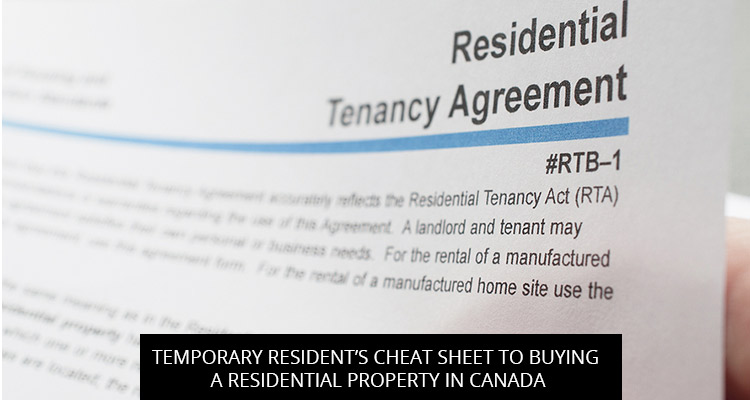
Canada entertained an extraordinary number of immigration applications in the year 2022. As per the latest data compiled by Immigration, Refugees and Citizenship Canada (IRCC), around 120,000 temporary residents residing in Canada in 2022 converted into permanent residents. The number of temporary residents is mounting due to the Canadian-immigration-friendly routes such as study permit, work permit, and other business/investor programs.
Can A Temporary Resident Buy A Property In Canada?
Talking about temporary residents, the very next question that pops up in an individual’s mind is whether a temporary resident can purchase a property in Canada. The simple answer is No.
In June 2022, the Prohibition on the Purchase of Residential Property by Non-Canadians Act was passed. The act has come into force in January 2023. The act is intended to last for two years and it will stand repealed automatically after two years.
Why Was The Prohibition On The Purchase Of Residential Property By Non-Canadians Act Passed?
Property prices in Canada skyrocketed subsequent to the pandemic and according to 2022’s year data from the Canadian Real Estate Association (CREA) the regular cost of residential property in Canada soared to $816,720 at the start of the year however, it lowered by the end of the year. Therefore, considering the instability in the Canadian housing market, the act is a temporary move to stabilize it.
Does The Act Provide Any Exceptions?
It is pertinent to note that the ban excludes Canadian citizens and permanent residents. The Act prohibits foreigners i.e. temporary residents and non-Canadians from buying all kinds of residential and recreational property. This does not mean that you are completely banned from buying property, however, the bright side is that you can still buy property as there are certain exceptions entailed in the Act.
What Are The Exceptions Under The Act?
The temporary residents are permitted to buy recreational properties. That is to say, you can buy a cottage or any vacation home for any recreation purpose.
Also, the properties that are not within the census metropolitan area are also an exemption for the temporary residents.
The prohibition under the Act also does not apply to non-Canadians (and their Canadian spouses) only in the situation if they go through any life-altering event such as; divorce, death, etc. If a non-Canadian buys a home with their Canadian spouse, then few benefits can be provided to them.
Additionally, the individuals who are residing in Canada on study permits and work permits are also permitted if they meet any of the following requirements respectively.
Purchasing A Residential Property If You Are On A Study Permit
The individual who is studying at a Canadian institute is entitled to buy property if they fulfill any one requirement mentioned below:
- Before making a purchase of any residential property, you have to make sure that you have resided for 244 days each year for the previous five years
- You have regularly filed your income tax return under the Income Tax Act for the past 5 five years
- The limit of the purchase should not exceed $500,000
- The individual has purchased only one property
Purchasing A Residential Property If You Are On A Work Permit
For work permit holders, the following requirements are mentioned in the Act
- If you have spent a period of at least three years working full-time in Canada in the four years before the year of purchase.
- If you filed your income tax return for not less than a period of three of the four years prior to the year, the purchase was made
- If you have purchased only one residential property
If you are a temporary resident in Canada and thinking to buy a property, make sure you meet the standards of acquiring a home as a study permit holder or work permit holder.
Contact The Lawyers At Ayaz Mehdi Professional Corporation!
The immigration lawyers at Ayaz Mehdi Professional Corporation can represent you in every kind of immigration matter. Get in touch with us by clicking the link in the disclaimer below.
Disclaimer: Kindly note that sending or receiving information through this site does not establish a solicitor-client relationship. Legal matters are fact-specific, and the law is variably changing. The views expressed and the content provided on this blog are general guidelines and cannot substitute for proper legal advice. Schedule your legal consultation by clicking here: Let’s meet!






